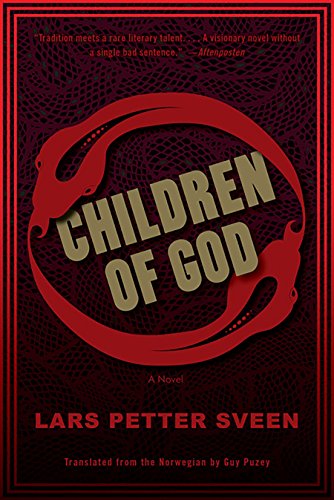Children of God
Translated from Norwegian, thirteen somewhat interlocking vignettes portray life on the edge of society in Israel at the time of Jesus. Roman soldiers search for newborns in Bethlehem—to kill them; random travelers mingle with cut-throat thieves; brutalized women and lepers struggle for a bit of peace or acceptance; the spirit of a dead woman hovers with insects in the earth as if still alive; a mysterious blind man in a cave spreads his message of evil. All hear of, some see, and even talk to the imposing son of God. Simon Peter and Judas have minor roles.
Sveen does not flinch from the grim lives of abject poverty, incurable diseases, life-long scars and wounds, mean treatment of the vulnerable, and the numbing oppression coming out of Rome. Yet many of these downcast characters hope for a better tomorrow, retaining some faith in human kindness. Something akin to modern versions of love creep in. The prose is literary (“their voices like insects in a jar”), often powerful, and always clear. Unfortunately, several lapses into current jargon (“I know the score,”) are jolting.
Viewed as a collection of short stories, Children of God is a compelling and thought-provoking treatment of the origins and nature of human good and evil set at a place and time that spawned one of the world’s great religions. Readers looking for a traditional novel arc with fully-developed heroes and a neat ending may be disappointed.










